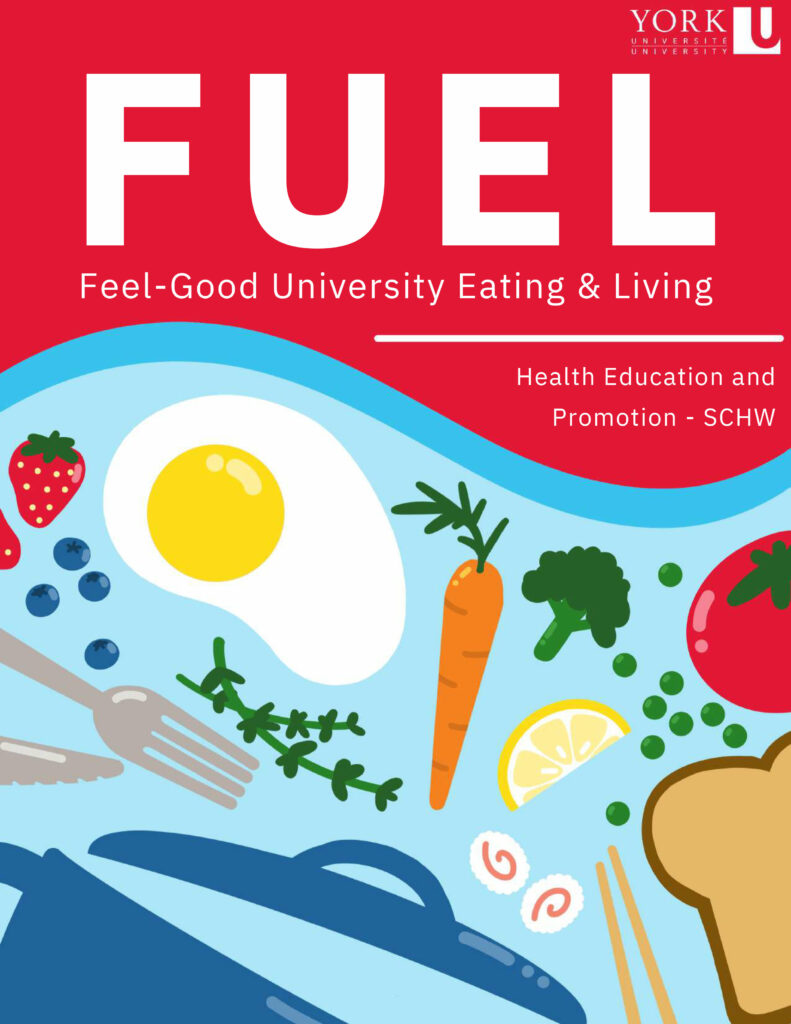
Ashlyn Nguyen was excited to cook her own meals when she first moved into student residence at York University in 2021. However, as the school year began, she, like many other students, had to adjust to a busy student lifestyle.

“As someone who is a foodie and loves to cook and bake, I was really looking forward to having my own kitchen,” she says. “But it was challenging for me to feel motivated to cook and find easy ways to accommodate my schedule. I can only imagine how other new students living in residence may have felt if they had never cooked for themselves before.”
Despite this, Nguyen, a former biomedical science student who was a peer health educator during her second year of studies at York, turned her experience into an opportunity. She merged her passions for well-being and food advocacy to develop Fuel: Feel Good University Eating & Living – a cookbook containing a collection of diverse recipes and tips to help students and University community members on their journey towards nutritious eating habits.
“I wanted to support students like me who may have struggled with living alone and cooking on their own for the first time,” Nguyen says.
The development of Fuel began this year. It was entirely student-led, and the book consists of approximately 30 recipes. Each recipe was created and tested by York’s peer health educators, who promote University services, resources and health initiatives to students across campus. Nguyen and the peer health educators also included tips within the book to manage cooking and mindful eating.
Nguyen says she and her team wanted the cookbook to be as accessible as possible; each recipe was crafted to incorporate different skill levels, dietary preferences and cultural backgrounds.
“We built recipes that were created by students, for students, which made all the recipes in the cookbook very approachable for others who are just like us,” she says, adding that the book is centred around recipes that are balanced, affordable and beginner-friendly.

Alicia Moonesar, assistant director of Health Services, Education & Promotions at York, recognizes that university students may face difficulties when trying to eat healthy on a fixed budget, but says that Fuel hopes to help promote nutritious habits.
“Research demonstrates that students can learn better when they're well-nourished, and eating healthy meals has been linked to higher grades, improved memory, alertness and quicker information processing,” she says. “This book will give students lots of delicious meal ideas that are easy to prepare and give them the energy they need."
Moonesar supervises Nguyen and the team of peer health educators, and supported them throughout the construction of the book. She says York’s peer health educators continue to make a difference on campus by utilizing health promotion, health education workshops and engagement activities, and by sharing resources online.
Diversity was also an important element to Nguyen when developing Fuel. The final chapter, "Celebrating Cultures," incorporates cultural recipes from each peer health educator that contributed to the book. “The diversity of the York community is reflected in the content throughout,” says Nguyen. “One of the recipes in this section is Vietnamese spring rolls, a traditional dish from my culture, which is easily customizable and includes accessible ingredients for students.”
Nguyen hopes the project helps other students across the University.
“It’s wonderful to see what collaboration among students can do,” she says. “My goal is that students use the cookbook, have a positive experience and feel like they were supported by this resource."
Staff and faculty are encouraged to explore the Fuel cookbook and share it with students and community members.
